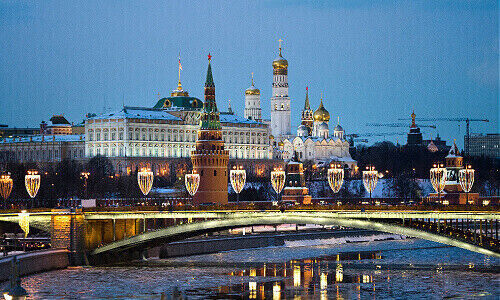Voices are increasingly being heard that assets should be fully confiscated related to the Ukraine war, but doing so risks far more severe consequences.
A month ago - normal trade. Now, in the space of that time, Russia's leadership has managed to destroy almost everything in the same way that they are trying to lay waste to Ukraine. There is little trade left between east and west besides oil and natural gas. All of this will throw the global economy back in time to the period before the Berlin wall fell.
The assets of the Russian elites and oligarchs have been frozen by sanctions. In the past few weeks, their physical property, including luxury yachts, have been impounded. The UK government is discussing whether to place refugees in the mansions of wealthy Russians, effectively confiscating them.
Investments No Longer Safe
We still have to wait for Russia's response to the unexpectedly stiff sanctions regime, which Switzerland is also enforcing. Part of that could be because Russia needs western money to conduct war. But it also could be that the Kremlin is surprised by the strength of the reaction and the west's cohesiveness. No-one predicted that a constantly squabbling EU would be able to deliver such a powerful answer so quickly.
The only thing remarkable about the response of the Russians has been their threats to nationalize western production facilities located in the country. That would be, in practice, voiding the bilateral investment agreements between Russia and the west, including with Switzerland, which has had one in place for over three decades. But those who confiscate go against the «Rule of Law», and risk making the impacts of the current crisis far more severe.
Search for Alternatives
It is too early to predict the course of economic developments. Much will depend on the war and the impact of the current measures on Russia's leadership, not to mention the future world order. Trade experts have been very restrained about making any forecasts because of all this.
The are three developments that look to be increasingly clear and which can logically be explained by the breakdown between the east and west. The first relates to the question of where production facilities should be located. The abrupt breach with Russia and the widespread destruction in the Ukraine are putting certain industries under pressure. Switzerland Global Enterprise, which promotes domestic exports, told finews.com that Russia will disappear from any kind of priority list. Companies will simply try to find new markets in order to cushion the blow.
Any return to the status ante quo will remain an illusion as long as the current sanctions regime is kept, and that is likely to depend on how long Putin's regime lasts as well as any western investor doubts over property rights and assets in Russia.
Reduce Dependency
The second point is about commodities. The west is currently working hard to wean itself off Russia's oil, natural gas and other commodities, such as coal and uranium. These efforts have gone so far as to lead the U.S. to engage in talks with Venezuela, although these were apparently subsequently broken off given the controversy, according to CBS.
The question is whether strategic considerations surpass political ones, or whether countries are willing to accept human rights abuses, such as in Venezuela and Saudi Arabia. It also does away with price considerations. Even if Russian gas is the cheapest, we do not want it anymore out of political-strategic considerations.
De-globalization and Stagflation
The third point is a narrative that has come up as a result of the pandemic. The war in the Ukraine has resulted in supply-side bottlenecks and production disruption in many industries, including in the automotive sector, and this is shaking the markets to the core. «The Ukraine conflict is accentuating the progress of de-globalization and creating a radical new geopolitical reality», says Heinz-Werner Rapp, Chief Investment Officer of Feri, a German investment house.
Globalization has provided consumers in the west with prosperity and an extended period of minimal inflation. De-globalization will likely lead to higher prices and lower growth rates and risks the possibility of stagflation. Much of that depends on developments in China and the further course of the pandemic, given the country continues to impose partial lockdowns in several cities and regions related to Omnicron.
Everything taken together, it is clear that market risks have grown significantly. Any hope that some form of normality quickly returns has been completely erased. «The large picture is changing radically», says Feri’s Rapp, adding that the perspective for equity markets is going to become extremely challenging.




































